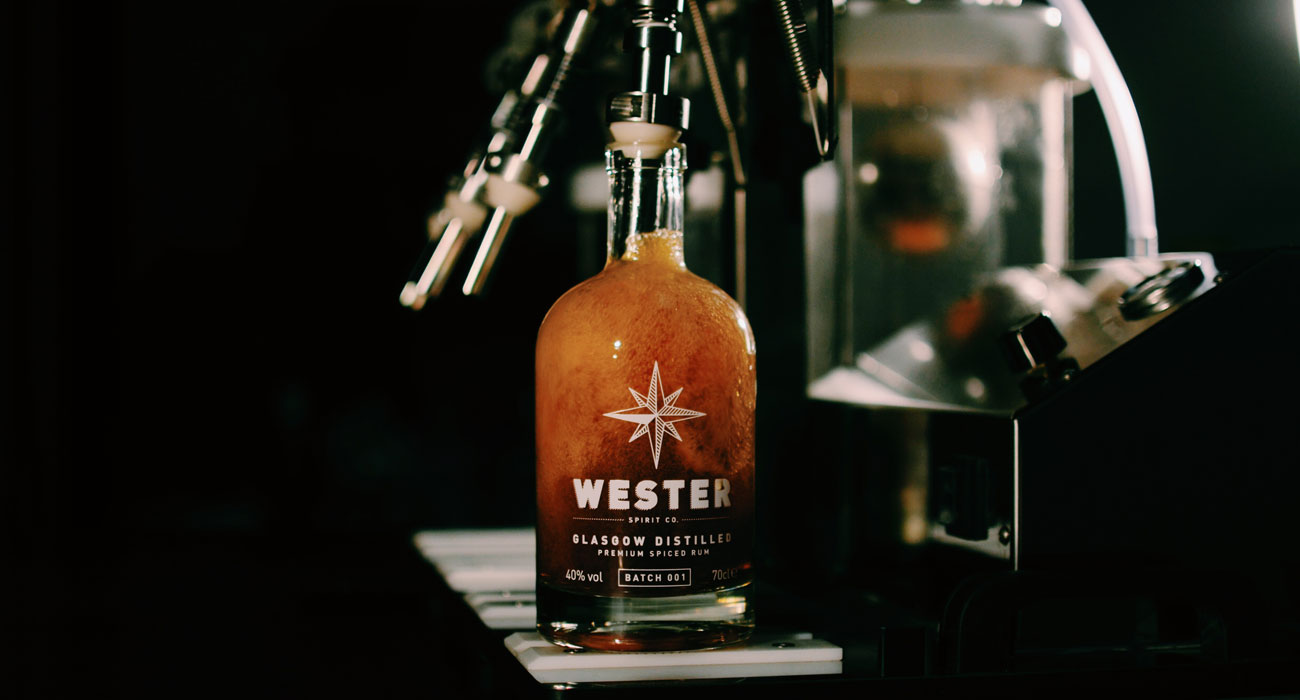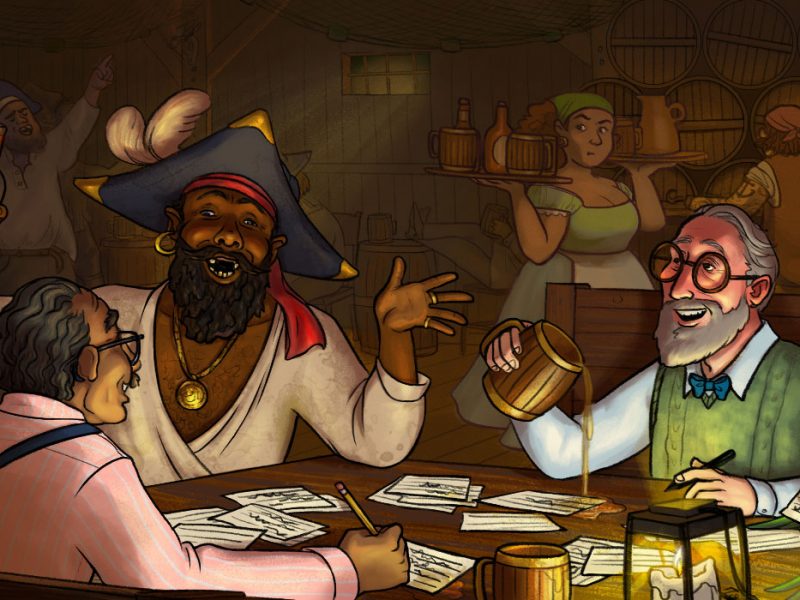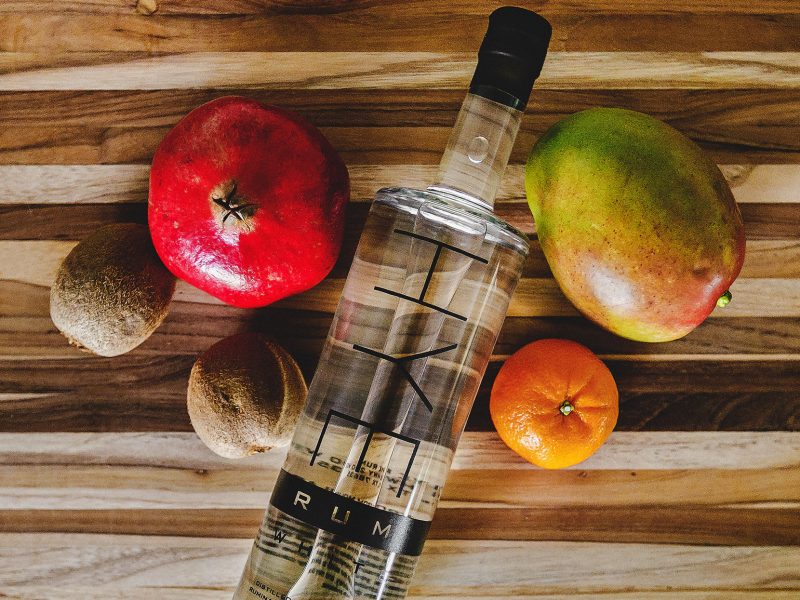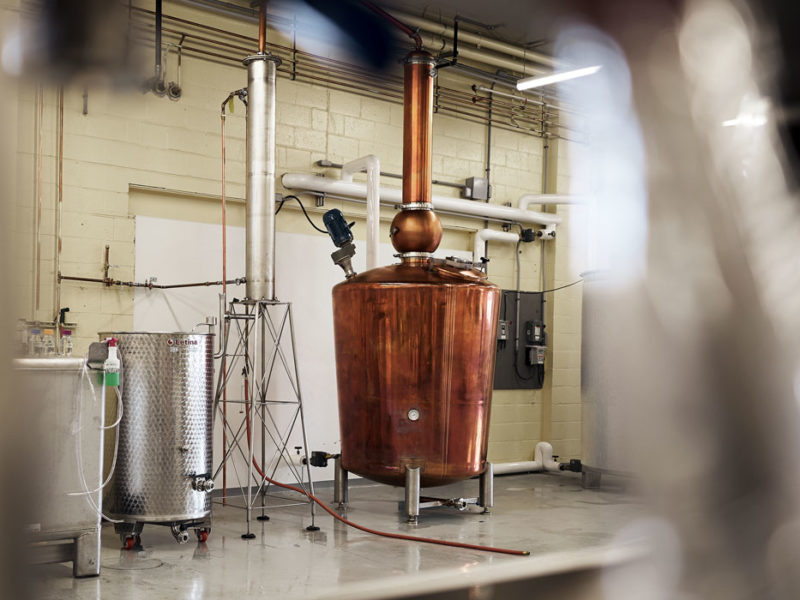The spirit you think of when Scotland comes to mind is whisky, while the typically-imagined setting for rum is the tropics. Yet wet, blustery Scotland is determined to become a new global rum powerhouse. “It certainly seems like [Scottish] rum is the new gin,” says Blair Bowman, a whisky consultant and author based in Edinburgh, Scotland. “The Scottish gin market is so saturated that it appears that many producers are choosing to launch rums instead of competing in the crowded gin market.”
At least eight distilleries have emerged on the market, with “a few more in the pipeline,” says Mike Aikman, co-owner of popular Edinburgh bars like Bramble and Lucky Liquor Co., as well as the co-founder of SeaWolf. “I also think [Scottish rum is] in its infancy at the moment, so we haven’t seen the best of it yet. There is so much potential for Scottish rum that we are at an incredibly exciting point.”
Aikman and business partner Jason Scott got into the rum game predicting it to be the next big mixable white spirit. They felt that rum’s three-ingredient simplicity (molasses, yeast, water) echoed Scotch whisky distillation, and set out to see what a rum made in Scotland would taste like. The SeaWolf team was working with plenty of bar experience guiding their development. Their testing phase was mostly centered around creating a Daiquiri rum. “We use white rum a lot in our bars, and the Daiquiri is still one of the most called-for classics,” says Aikman, “so we thought it would be interesting to make our own white rum, which isn’t distilled thousands of miles away from Edinburgh.” Each of the more than fifty prototypes was thrown into a Daiquiri to see how the different ingredients, ABVs, and filtration levels worked in the cocktail. The end result was the rum that made the best Daiquiri. “After all, that’s the drink which white rum is most called upon for,” Aikman says.
Although they’ve made Scotland’s first white rum, they’re not the first to get into the category. Once upon a time (more specifically, the seventeenth and eighteenth centuries), Scotland made rum during the height of Caribbean sugar production. “Historically there were four or five rum distilleries in the city, all attached to sugar refineries,” says Zander Macgregor, director and co-founder of Wester Spirit Co., a Scottish spiced rum. “The initial growth of the city of Glasgow was fueled by the sugar trade. Our name ‘Wester Spirit Co.’ is taken from the Wester Sugar House, which was a sugar refinery and rum distillery in the city around 300 years ago.” With the gin wave maxing out, it’s time for Scottish rum’s resurgence once again. “The industry believes that rum consumption will follow gin in its growing popularity,” says Steve Ross, head of production for NB Distillery, which makes a golden rum in North Berwick. “So distillers, in particular Scottish distillers, are trying to produce rum in increasing numbers.”
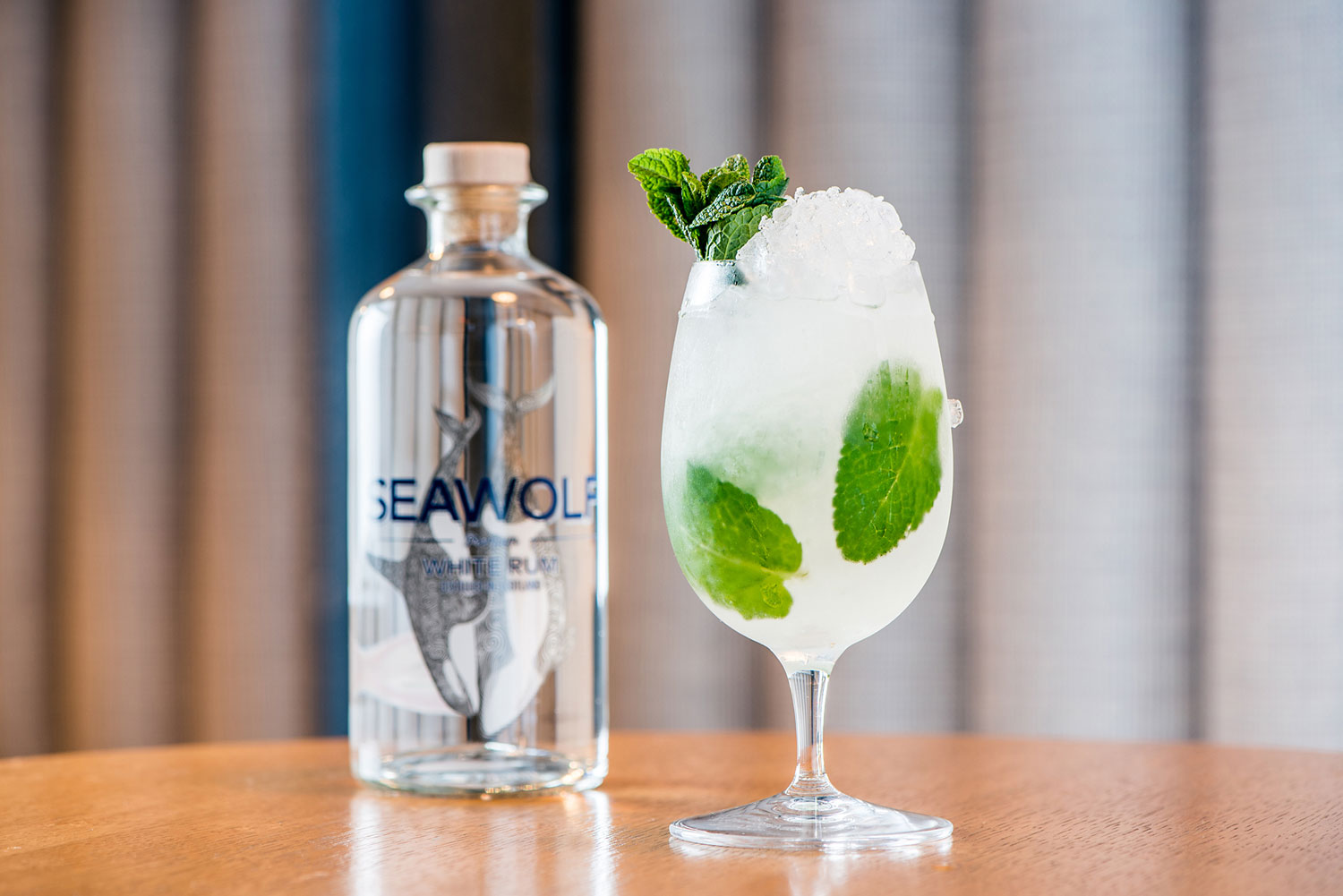
For the Wester team, the decision to make a spiced rum came from seeing it as the drink of choice on a night out for the majority of their friends. “After finding that the majority of spiced rums were overly sweet and very heavy on the vanilla, we decided to make our own,” Macgregor says. “We decided to focus on natural ingredients that worked well with the profile of the spirit. We developed the recipe to a be a balance of all the flavors so, when tasting the rum, you can pick all of the nine ingredients individually at different stages of the taste experience. Citrus, spice, ginger, and vanilla form the flavor profile of Wester Spiced rum.”
Bowman believes entrepreneurs are piggybacking on Scotland’s whisky success to propel the future of rum and other spirits. “I think part of the reason for the acceleration of new spirits coming from Scotland is the heritage that Scotland has for producing Scotch whisky, a world-class product with international appeal and premium quality,” he says. “People associate Scotland with its quality Scotch whisky, and therefore other spirits are riding on the coattails of Scotch whisky’s reputation worldwide.”
Rum poses more of a challenge to distillers than gin, particularly when you’re making rum in the United Kingdom. Scottish distillers may use many of the same production processes as their Caribbean counterparts, but they’re working in a vastly different environment. Scotland’s climate is almost the opposite of the Caribbean’s, where rum does well. Temperature and humidity are the chief concerns. “Temperature can have a significant effect on fermentations and the aging process,” says Macgregor. “We have taken measures to address this by using jacketed and insulated fermentation tanks and experimenting with the aging process in different types of wood.” Heating or cooling fermentation allows Wester’s team to make sure yeast is working at its best. “Other than that, the process is the same” as in the Caribbean, Macgregor says.
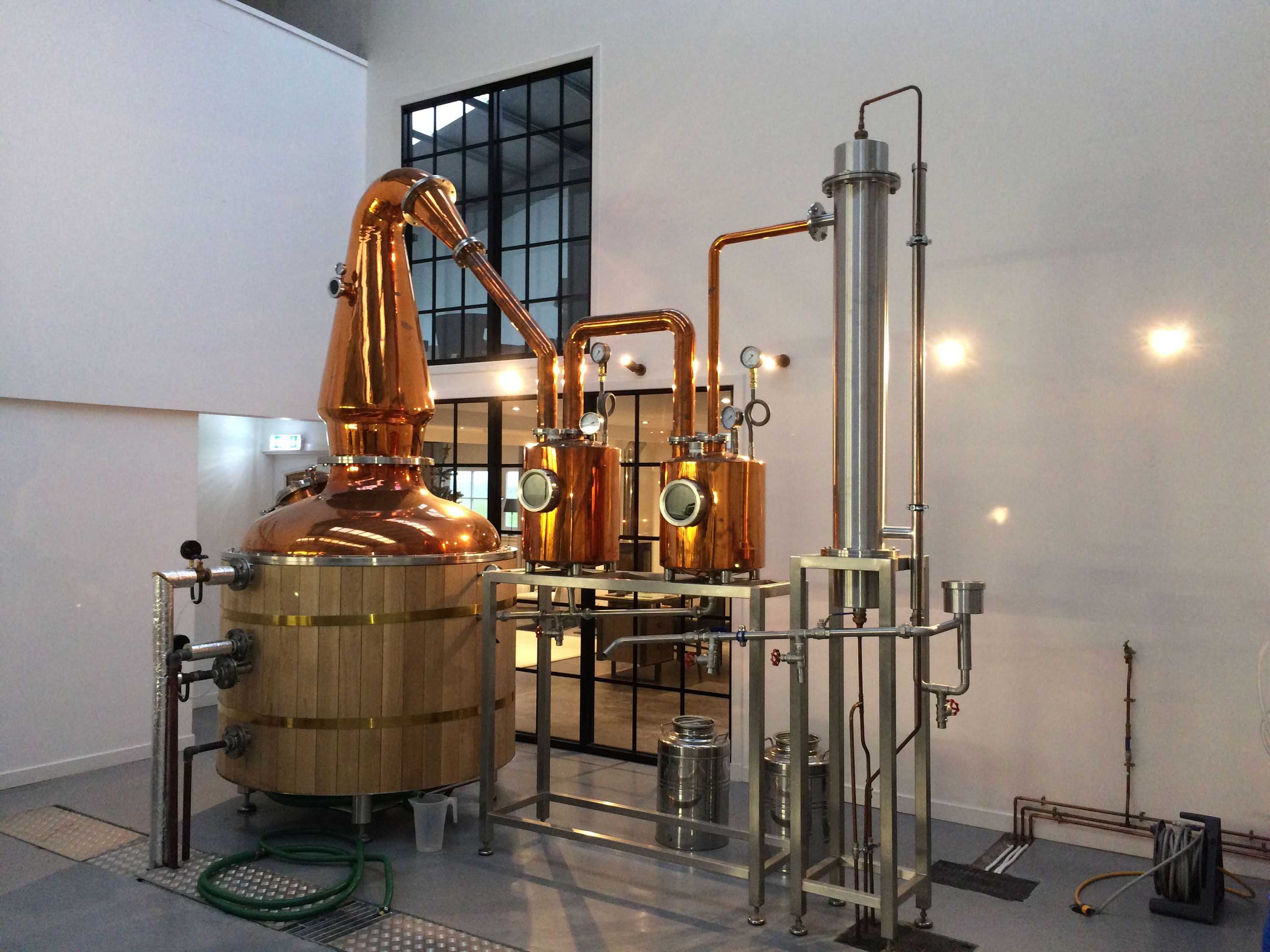
There’s a lot of spiced rum getting made in Scotland, but not in the Captain Morgan way. Scottish distilleries seem to be focused more on using quality ingredients to enhance their product rather than to mask an inferior product. “Typically I’ve never been a huge fan of spiced rum, with many mainstream spiced rums being overly spiced, sickly sweet, and not at all balanced,” Bowman says. “However, I have become a fan of Wester Spiced rum, which is an excellent product with a balance of flavors and is very versatile.”
That could be because Wester is staying away from sweet, vanilla-based flavors in favor of natural ingredients like fresh ginger, citrus, and whole spices. In central Scotland, Paul and Jacine Rutasikwa macerate an East African spiced blend of cloves, black tea, ginger, cardamom, vanilla, and cinnamon to make their increasingly popular Matugga Spiced Rum. The efforts of entrepreneurs like the Rutasikwas seem to be working. Consumers are starting to find Dark Matter, a spiced rum made in Aberdeenshire, in bars and grocery stores, “which is usually a sign that a product is mainstream—I mean that in a positive way,” says Aikman.
“However, it is still very niche,” says Bowman, who hasn’t seen Scottish rum out in the wild too often. “It’s not reached the mass appeal of gin. I think rum, like whisky, is more of an acquired taste, while gin appeals to the masses. I would be surprised if there was a sudden explosion of Scottish rums in the same way as Scottish gin exploded a few years ago.”
Wester Spirit Co. currently sells the majority of its rum in the U.K., but has received a number of enquiries from abroad. This year, the company will explore export markets to see which ones are the best fit for their rums. It could take a while for Scottish rum to be a substantial player in the global spirits arena, but distillers believe the promise for success is there. “Rum is made in countries all over the world, and I think Scotland has the potential to one of the main players in rum production,” says Macgregor. “Scotland can use the distilling talent that it has developed in the whisky industry and apply that to Scottish rum production. I can see the rum category growing rapidly over the next few years with a number of new rum distilleries establishing themselves all over the U.K.”

